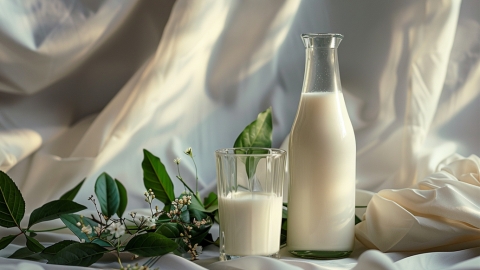Can leeks and goat's milk be eaten together?
Generally speaking, leek and goat's milk should not be consumed together. The analysis is as follows:

Leek has a warm nature and a dispersing effect, affecting the stomach and liver meridians. It helps to warm the middle jiao, promote qi circulation, support yang energy, and dissipate blood stasis. However, excessive consumption may easily generate internal heat. Goat's milk is also warm in nature and contains high levels of protein and saturated fat, requiring significant gastric acid and digestive enzymes for digestion. When consumed together, their combined warming properties may excessively elevate stomach fire, leading to symptoms of "excess stomach heat," such as epigastric burning, belching with acid regurgitation, and oral ulcers. This combination may particularly worsen gastric mucosal damage in individuals with a damp-heat constitution or those suffering from chronic gastritis, increasing the risk of stomach pain, acid reflux, or even peptic ulcers.
Leek is rich in insoluble dietary fiber, which promotes intestinal motility but requires adequate hydration to function effectively. The casein in goat's milk tends to form curds when exposed to gastric acid, delaying gastric emptying. When consumed together, the fiber and curds may intertwine, forming larger "food masses" that increase mechanical friction within the stomach, potentially causing bloating, frequent belching, and even a risk of intestinal obstruction.
If simultaneous consumption is necessary, it is recommended to separate intake by at least two hours to avoid the accumulation of heat-producing substances in the stomach.




